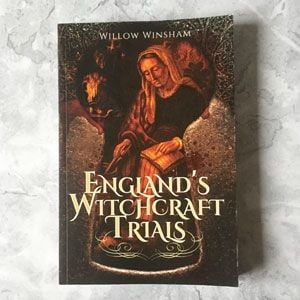Book review - Lady of the House
Posted on
If you’ve ever spent an afternoon walking around a National Trust property (or even worked for them, as I used to do) then you’ll probably hear a volunteer talking about the previous owners. Most country houses have had a famous or infamous occupant, or a relation of a famous individual, at some point in their history. Although the National Trust is doing it’s best to ensure more women are visible in their house histories, it’s a long process to research And that’s just the National Trust! There are still plenty of country houses that are privately owned and are opened to the public by the family, or owned by charitable trusts dedicated to the preservation of a particular property.
 This book arrived just after I saw the Doctor Who episode “The Witchfinders”, which as the title suggests featured a storyline involving witches (which included references to Pendle). Having seen the episode I felt like I could use a bit of an introduction in to the world of English witchcraft trials. I felt like I knew more about the Salem witch trials than anything that had happened in the UK, and that was just through Wikipedia reading.
This book arrived just after I saw the Doctor Who episode “The Witchfinders”, which as the title suggests featured a storyline involving witches (which included references to Pendle). Having seen the episode I felt like I could use a bit of an introduction in to the world of English witchcraft trials. I felt like I knew more about the Salem witch trials than anything that had happened in the UK, and that was just through Wikipedia reading.